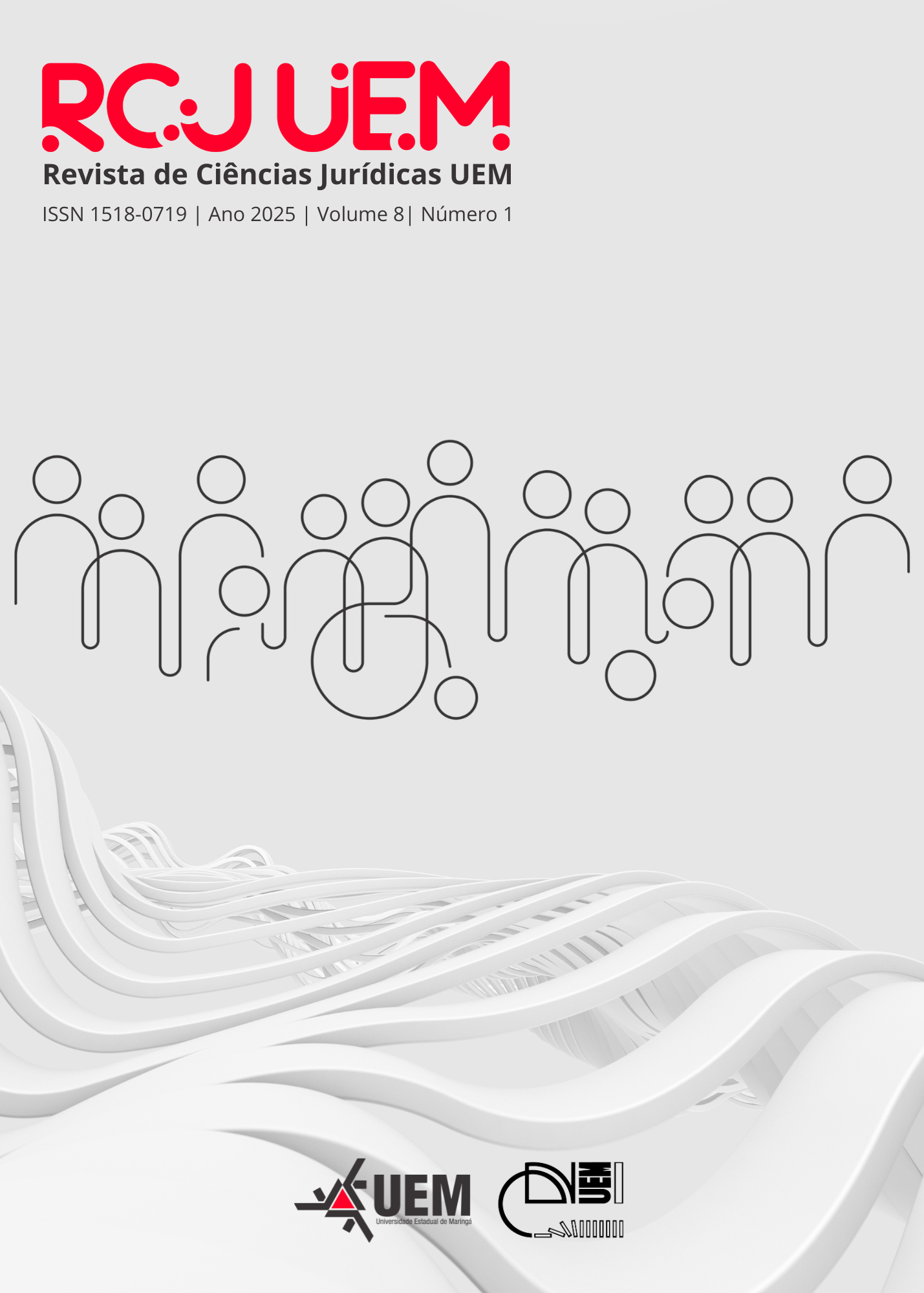COHERENCE BETWEEN THEORY AND PRACTICE IN HUMAN RIGHTS EDUCATION:
A STORY OF LOVE AND HOPE
Abstract
The relationship between education and human rights in the Latin American context provides fertile ground for discussions on social inequality, inclusion, and social justice. This article explores this relationship from a Freirean perspective, focusing on emancipation and the promotion of human rights. The central question is how human rights education can be implemented consistently with the principles of social justice, considering the challenges posed by socioeconomic stratification and the colonial legacies in Latin America. To address this, following an analytical methodology and literature review technique, the general objective is to propose a critical reflection on these challenges, addressing the intersection between education and human rights, the impacts of educational policies on access to these rights, and the coherence between educational theory and practice. The study integrates Warat’s contributions regarding a creative conception of legal education. Drawing on the theoretical insights of Paulo Freire, Maria de Nazaré Tavares Zenaide, and Solon Eduardo Annes Viola, the article concludes that human rights education is not merely a right but, above all, an essential means for affirming all other human rights.
Downloads
References
BISPO DOS SANTOS, Antônio. A terra dá a terra quer. São Paulo: Ubu Editora, 2023.
DOWBOR, Fátima Freire. Quem educa marca o corpo do outro. Organizadoras: Sonia Lúcia de Carvalho e Deise Aparecida Luppi. 2. ed. São Paulo: Cortez, 2008.
FREIRE, Paulo. À sombra desta mangueira. 15. ed. Rio de Janeiro: Paz & Terra, 2022.
FREIRE, Paulo. Conscientização: teoria e prática da libertação: uma introdução ao pensamento de Paulo Freire. São Paulo: Cortez & Moraes, 1979.
FREIRE, Paulo. Direitos humanos e educação libertadora: gestão democrática da educação pública na cidade de São Paulo. Organização e notas de Ana Maria Araújo Freire, Erastos Fortes Mendonça. 1. ed. Rio de Janeiro/São Paulo: Paz e Terra, 2019.
FREIRE, Paulo. Pedagogia do oprimido. 85. ed. Rio de Janeiro: Paz e Terra, 2023.
GONÇALVES, Marta Regina Gama. A ciência jurídica e seus dois maridos, colocando as verdades fora do lugar: uma projeção da teoria da carnavalização literária no direito. Revista Brasileira de Filosofia do Direito, Florianópolis-SC, v. 4, n. 1, 2018. Disponível em: https://www.indexlaw.org/index.php/filosofiadireito/article/view/4295. Acesso em: 25 out. 2023.
GONÇALVES, Marta Regina Gama. Surrealismo Jurídico: a invenção do Cabaret Macunaíma: uma concepção emancipatória do Direito. Disponível em: http://repositorio.unb.br/handle/10482/2736. Acesso em: Acesso em: 15 out. 2023.
HOOKS, Bell. Ensinando a transgredir: a educação como prática da liberdade. 2. ed. Trad. Marcelo Brandão Cipolla. São Paulo: Martins Fontes, 2017.
HOOKS, Bell. Ensinando comunidade: uma pedagogia da esperança. Tradução Kenia Cardoso. São Paulo: Elefantes, 2021.
MARTINS, Laércio Melo. Medicina da mente em Espinosa: a primazia do corpo para a cura. 1. ed. Goiânia: [s.n.], 2023. Edição do Kindle.
OLIVEIRA, Fernando Bonadia de. A educação no Capítulo 9 do Apêndice da Ética IV de Espinosa. Resafe: Revista Sul-Americana de Filosofia e Educação, v. 17, p. 14–37, 2012. Disponível em: https://doi.org/10.26512/resafe.v0i17.4448. Acesso em: 20 jun. 2023.
RABENORT, William Louis. Spinoza como educador. Tradução GT Benedictus de Spinoza; coordenação Emanuel Angelo da Rocha Fragoso e Francisca Juliana Barros Sousa Lima. 1. ed. Fortaleza: EdUECE, 2016.
REIS, Helena Esser dos. O que nos faz agir? Discussões filosóficas sobre os fundamentos dos direitos humanos. Prometheus - Journal of Philosophy, v. 7, n. 16, 2014. Disponível em: https://doi.org/10.52052/issn.2176-5960.pro.v7i16.2527. Acesso em: 25 out. 2023.
REZENDE, Cristiano Novaes de. A gênese textual da doutrina da educação das crianças no Tratado da Emenda do Intelecto de Espinosa. Filosofia e Educação, v. 5, n. 1, p. 52–110, 2013. Disponível em: https://doi.org/10.20396/rfe.v5i1.8635411. Acesso em: 25 out. 2023.
WARAT, Luís Alberto. A rua grita Dionísio! Direitos humanos da alteridade, surrealismo e cartografia. Rio de Janeiro: Lumen Juris, 2010.
WARAT, Luís Alberto. A rua grita Dionísio! Direitos humanos da alteridade, surrealismo e cartografia. Rio de Janeiro: Lumen Juris, 2010.
WARAT, Luís Alberto. Territórios desconhecidos: a procura surrealista pelos lugares do abandono do sentido e da reconstrução da subjetividade. Vol. I. Florianópolis: Fundação Boiteux, 2004.
WARAT, Luís Alberto. Territórios desconhecidos: a procura surrealista pelos lugares do abandono do sentido e da reconstrução da subjetividade. Vol. I. Florianópolis: Fundação Boiteux, 2004.
Copyright (c) 2025 Revista de Ciências Jurídicas UEM

This work is licensed under a Creative Commons Attribution-NonCommercial 4.0 International License.
Copyright (c) 1997 Revista de Ciências Jurídicas
This work is licensed under a Creative Commons Attribution-NonCommercial 4.0 International License.
This means that the following actions are allowed:
- Share: Copy and redistribute the work in any medium or format.
- Adapt: Remix, transform, and build upon the work.
Provided that:
- Attribution: The Journal must be credited, the license used must be indicated, and any modifications made must be specified, without suggesting that the Journal has endorsed the use or the user(s) of the work.
- NonCommercial: The content must not be used for commercial purposes.
- No Additional Restrictions: No legal or technological measures may be applied to restrict others from carrying out actions permitted by the license.
The Journal reserves the right to revoke these permissions if the license terms are violated.




